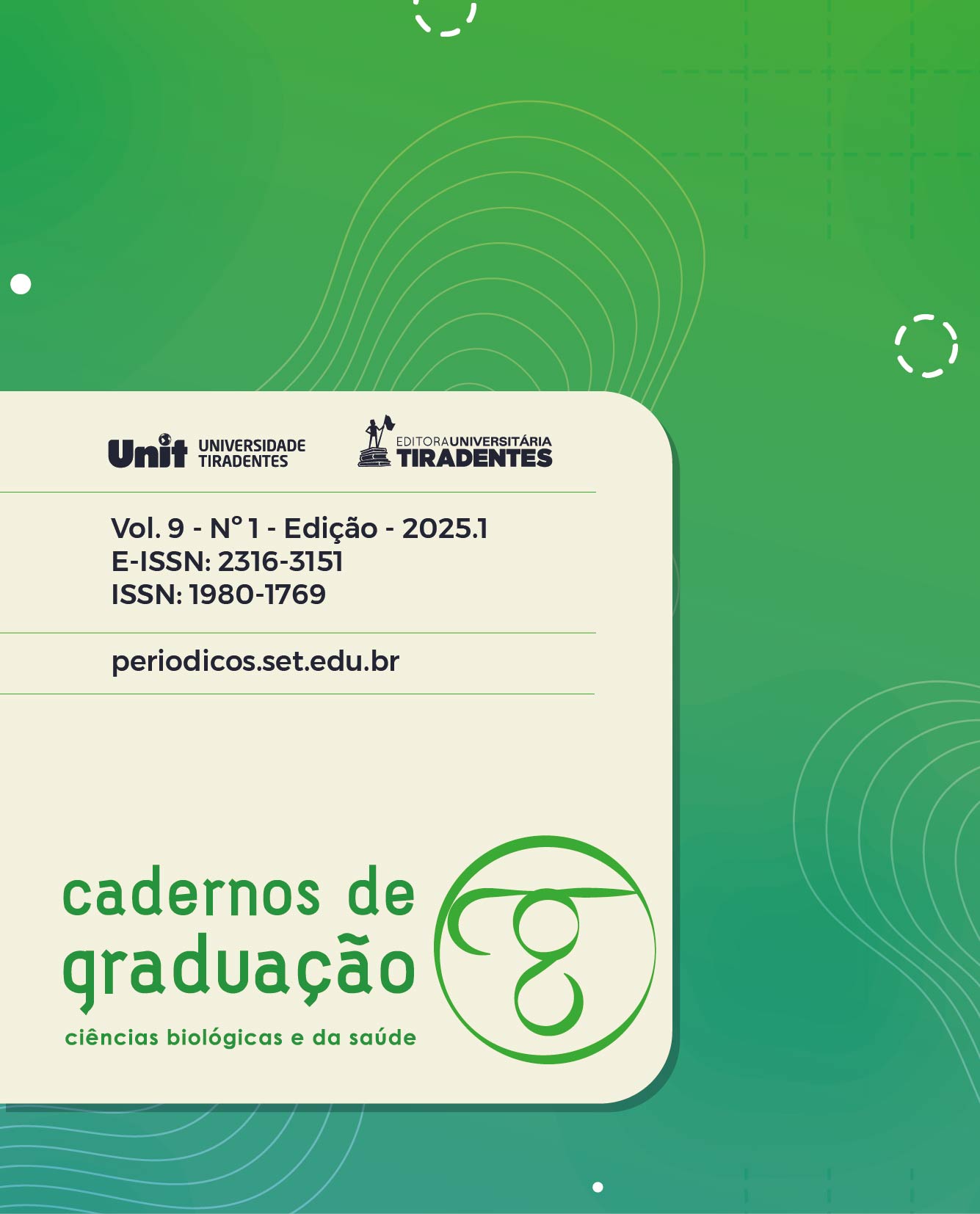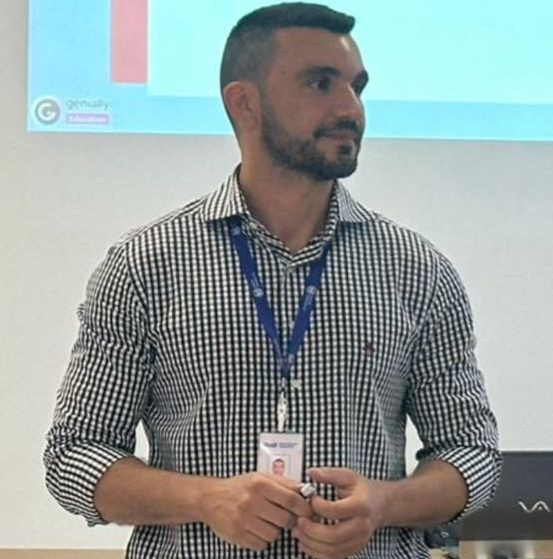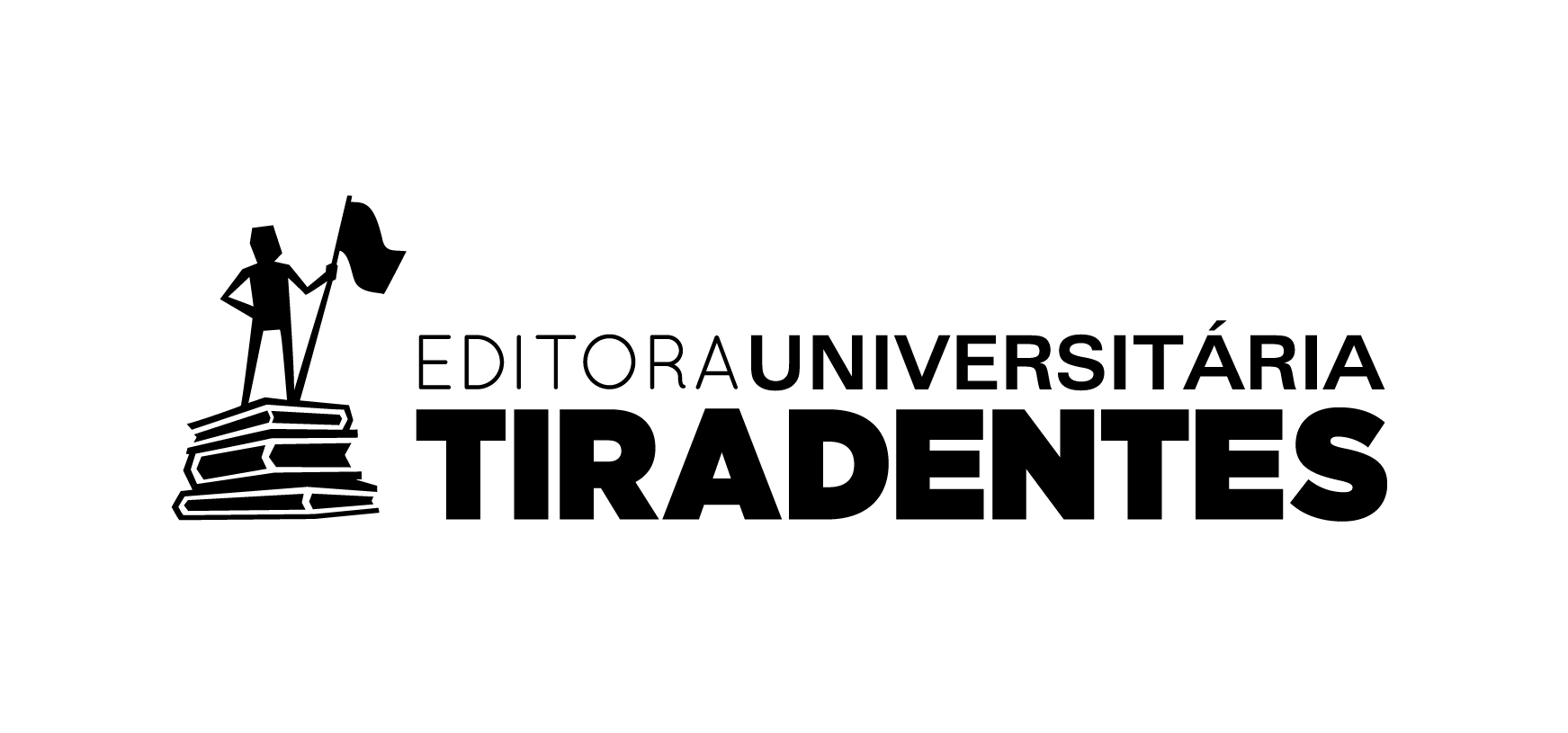EXTENSION PROJECT: PREVENTION AND TREATMENT OF CHRONIC WOUNDS IN PATIENTS IN SITUATIONS OF SOCIODEMOGRAPHIC VULNERABILITY
DOI:
https://doi.org/10.17564/2316-3151.2025v9n1p59-67Published
Downloads
Downloads
Issue
Section
License
Copyright (c) 2025 Caderno de Graduação - Ciências Biológicas e da Saúde - UNIT - SERGIPE

This work is licensed under a Creative Commons Attribution-NonCommercial-NoDerivatives 4.0 International License.
Oferece acesso livre e imediato ao seu conteúdo, seguindo o princípio de que disponibilizar gratuitamente o conhecimento científico contribui para a democratização do saber. Assume-se que, ao submeter os originais os autores cedem os direitos de publicação para a revista. O autor(a) reconhece esta como detentor(a) do direito autoral e ele autoriza seu livre uso pelos leitores, podendo ser, além de lido, baixado, copiado, distribuído e impresso, desde quando citada a fonte.
Abstract
The extension project carried out aimed to train the local team and implement actions for the prevention and treatment of chronic wounds, focusing on patients in situations of sociodemographic vulnerability. The methodology included the application of questionnaires to assess the challenges of the UBS, meetings with the health team to adjust the planning, and supervised home visits to perform dressings and provide guidance on self-care. Educational activities were also promoted, with the distribution of information materials. The results showed that 62.5% of patients in the target community were followed up, including interventions in five homes and regular care at the UBS. The integrated approach guaranteed a uniform standard of care and favored patient engagement, reflected in their collaboration with the treatment and adherence to the guidelines received. It was concluded that the initiative had a positive impact on the quality of care, despite structural and resource limitations. The partnership between UBS, the university and nursing students was crucial to expanding the reach of the project and promoting more equitable and holistic care. The importance of ongoing educational actions to prevent new injuries and the need for investment in training and resources for the advanced management of chronic wounds is highlighted.















